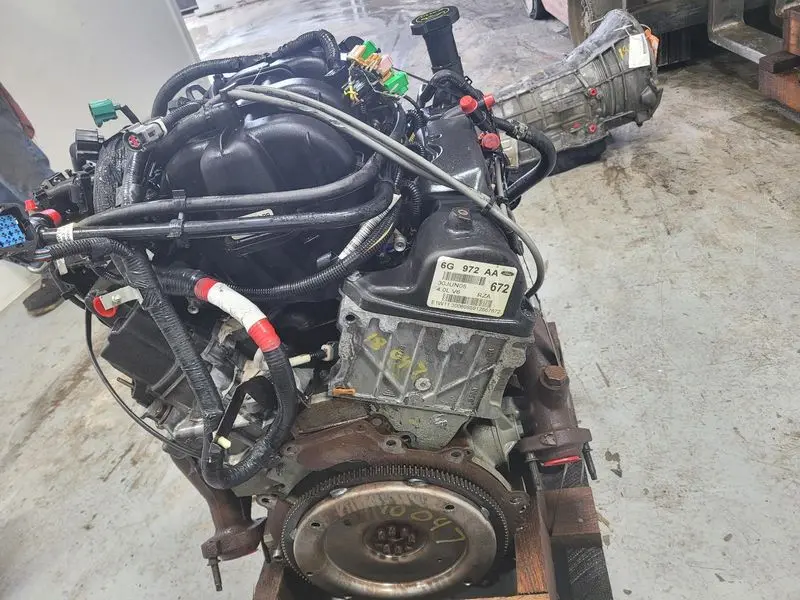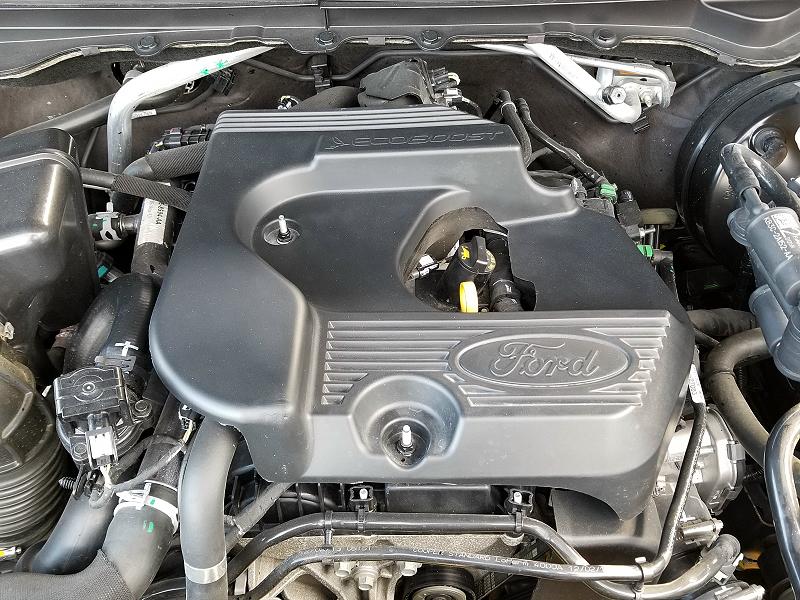The 2.2 Ford Ranger Engine: Ideal for Towing, Off-Roading, and Everyday Use
The 2.2 Ford Ranger Engine: Ideal for Towing, Off-Roading, and Everyday Use
Blog Article
Just How to Select the Right Vehicle Engine for Optimum Efficiency and Effectiveness
Selecting the suitable vehicle engine to attain an optimum equilibrium of efficiency and effectiveness demands a nuanced understanding of numerous engine types and their details attributes (2.2 ford ranger engine). Factors such as engine variation, the number of cylinders, and fuel type play a crucial duty in figuring out both power output and fuel economic climate.
Understanding Engine Types
When selecting a car, among one of the most important parts to think about is the engine type, which functions as the heart of the automobile. The engine type considerably influences the auto's total efficiency, durability, and suitability for your driving requirements. There are mainly three engine types to think about: internal burning engines (ICE), hybrid engines, and electrical engines.
Inner burning engines continue to be the most usual, operating gasoline or diesel. They are understood for their power and acceleration, making them ideal for performance-oriented lorries. Nevertheless, they may fall brief in gas performance and environmental effect.
Crossbreed engines integrate an inner burning engine with an electrical motor, offering a balance in between efficiency and gas economic climate. They are progressively popular for chauffeurs looking for decreased exhausts while still supplying sufficient power.
Electric engines, powered totally by batteries, are acquiring traction as a result of their environmental benefits and reduced running expenses. They offer instantaneous torque and a quiet driving experience, making them optimal for urban commuting.

Performance vs. Efficiency
Choosing the ideal engine kind includes weighing the compromises in between performance and efficiency. Efficiency normally describes exactly how well an engine can deliver power and velocity, which is frequently connected with bigger variation engines or those with turbocharging capabilities. These engines normally supply exciting driving experiences and quick response times, making them prominent among lovers.
On the other hand, efficiency concentrates on fuel economic situation and reduced discharges. Smaller engines, specifically those outfitted with sophisticated innovations such as straight fuel injection and variable shutoff timing, often tend to supply better miles per gallon and lowered carbon impacts. While these engines might sacrifice some power contrasted to their larger equivalents, they frequently master everyday driving circumstances where high efficiency is not constantly necessary.
Inevitably, the option between efficiency and effectiveness rest on individual top priorities. A chauffeur who values perky driving could prioritize a high-performance engine, while someone looking for cost-effective travelling might favor a reliable option. Understanding these compromises is essential for making a notified choice that aligns with your driving requirements and way of life, making certain that the chosen engine type complements your expectations for both performance and effectiveness.
Key Specifications to Think About
Comprehending vital specifications is important for making an educated choice concerning the ideal vehicle engine. When picking an engine, numerous critical factors necessitate consideration to guarantee optimal performance and performance.
Firstly, engine displacement, gauged in litres or cubic centimeters, is a vital requirements. It shows the total quantity of the engine's cylinders and generally associates with power result; bigger displacements usually produce even more power. Next, the variety of cylinders plays a considerable role in efficiency features. Engines with even more cylinders can offer smoother procedure and higher power, while smaller sized arrangements can read this post here boost gas effectiveness.
Additionally, the engine's arrangement, whether inline, V-type, or rotating, affects the total design and efficiency features of the car - 2.2 ford ranger engine. Turbocharging and turbo charging modern technologies must additionally be assessed; these boost an engine's power outcome without substantially raising its size, thus enhancing performance
Gas type is one more crucial consideration, as it impacts both performance and prices. The engine's compression proportion impacts efficiency and power shipment; a greater proportion typically leads to far better efficiency, however may call for superior fuel. By very carefully analyzing these specifications, you can choose an engine that lines up with your efficiency and performance goals.
Evaluating Driving Needs
Reviewing driving demands is a fundamental step in establishing the ideal cars and truck engine for your way of life and use patterns. If your driving primarily is composed of short commutes in city environments, a smaller engine with excellent fuel performance might be sufficient.
Take into consideration the terrain you commonly browse. Hilly or rugged landscapes may require an engine with greater torque for much better performance. Additionally, review traveler and freight her latest blog requirements; bigger family members or those who move products might benefit from automobiles with raised power and capability.
It's also important to evaluate your gas preferences. Diesel engines commonly offer exceptional torque and fuel economic climate for heavier automobiles, while gas engines may give a smoother and quieter trip. Last but not least, factor in ecological factors to consider, as hybrid or electrical engines can supply an extra sustainable choice without sacrificing efficiency. By completely understanding your driving demands, you can make an enlightened choice that aligns with both efficiency expectations and efficiency goals.
Future Trends in Engine Technology
As the automotive market continues to develop, developments in engine technology are leading the way for much more efficient and lasting driving experiences. One significant pattern is the change toward electrification, with crossbreed and completely electrical powertrains acquiring prominence. Automakers are spending greatly in battery innovation to boost power density and lower charging times, inevitably enhancing the practicality of electric lorries (EVs)
One more emerging fad is the development of hydrogen fuel cell engines. 2.2 ford ranger engine. These systems supply the possibility for zero-emission driving while offering refueling times comparable to standard fuel engines. Furthermore, improvements in burning modern technology, such as variable compression ratios and enhanced turbocharging, are optimizing standard inner burning engines for better performance and efficiency
Digital integration is likewise a crucial facet of future engine innovation. The application of expert system and maker understanding enables real-time information analysis, making it possible for smarter engine monitoring systems that adjust to driving problems and enhance gas effectiveness.

Verdict
To conclude, selecting the appropriate automobile engine demands an extensive examination of numerous variables, consisting of engine kind, efficiency requirements, and performance objectives. By understanding the distinctions between various engine his explanation kinds and thinking about crucial specifications, individuals can align their choices with particular driving requirements. As improvements in engine modern technology remain to arise, continuing to be informed about future trends will further enhance decision-making, eventually leading to a lorry that balances performance and fuel efficiency efficiently.
Picking the ideal auto engine to achieve an optimum balance of efficiency and efficiency requires a nuanced understanding of numerous engine types and their particular features. There are primarily three engine kinds to think about: interior burning engines (ICE), hybrid engines, and electrical engines.
Efficiency typically refers to how well an engine can deliver power and acceleration, which is commonly connected with larger displacement engines or those with turbocharging capacities. Diesel engines frequently supply premium torque and fuel economic situation for heavier cars, while gasoline engines might supply a smoother and quieter trip.In final thought, picking the proper auto engine requires a comprehensive evaluation of numerous aspects, including engine kind, performance demands, and effectiveness goals.
Report this page